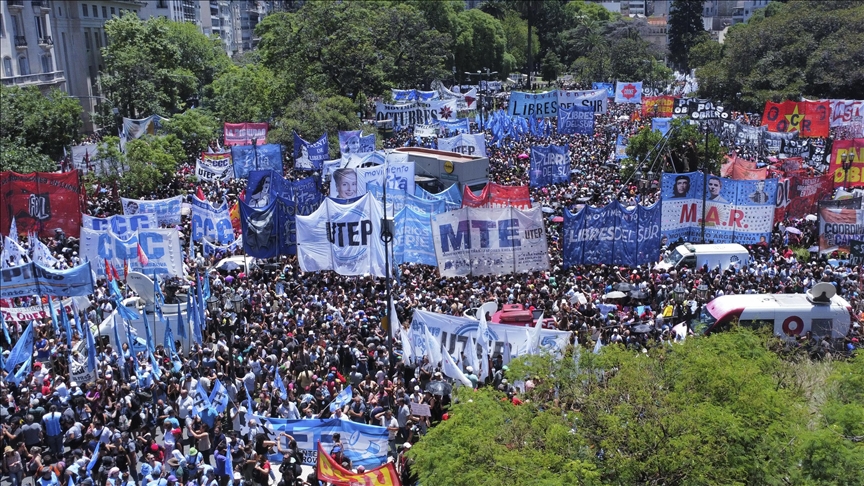Argentina, a nation historically marked by its political and economic tumult, finds itself once again at a pivotal moment. In a dramatic late-night session, the upper house of Argentina’s Congress narrowly passed a contentious bill central to President Javier Milei’s ambitious economic reform agenda. The razor-thin margin of 37 to 36 votes underscored the deep divisions within Argentine society over the proposed measures, triggering passionate protests that spilled into clashes with law enforcement on the streets.
The bill in question represents a cornerstone of President Milei’s libertarian-inspired economic strategy. Among its boldest provisions are sweeping privatization initiatives and substantial tax incentives aimed at attracting foreign and domestic investment. Advocates argue that these measures are vital to revitalizing Argentina’s stagnant economy, plagued by decades of inflation, debt, and economic volatility.
For Milei, a figure known for his unorthodox style and vocal criticism of Argentina’s traditional political establishment, the bill’s passage signifies a critical step towards fulfilling his campaign promises of economic revitalization and reducing state intervention in the economy. Supporters view his approach as a bold departure from the statist policies that have, in their view, stifled Argentina’s growth potential.
However, the bill has ignited fierce opposition from various quarters of Argentine society. Critics, including opposition lawmakers, labor unions, and segments of the public, decry the reforms as reckless and elitist. They fear that privatization could lead to job losses and exacerbate inequality, while the proposed tax breaks are seen as disproportionately favoring wealthy investors at the expense of working-class Argentinians.
The contentious nature of the reforms has spilled beyond the halls of Congress. In the wake of the bill’s passage, thousands took to the streets in protest, expressing their discontent with Milei’s policies and clashing with police in heated confrontations. These scenes reflect the broader societal fissures and deep-seated skepticism towards government policies that have characterized Argentine politics for decades.
As the bill now moves to subsequent legislative hurdles, including votes on individual articles, the debate over its merits and implications for Argentina’s future intensifies. For Milei and his supporters, it represents a chance to chart a new economic course, one they believe will bring prosperity and opportunity to a nation long beset by economic challenges. For opponents, it symbolizes a dangerous gamble that could further destabilize an already fragile social and economic landscape.
In conclusion, Argentina stands at a crossroads, torn between the promise of bold economic reforms and the perils of societal discord. The passage of this bill is not merely a legislative victory but a flashpoint in a broader struggle over the country’s direction—a struggle that will continue to unfold against the backdrop of protests, political maneuvering, and the aspirations of a nation grappling with its past and future.

